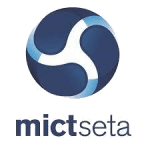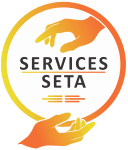The fast-paced ever-changing nature of the world today means that the capability to solve problems creatively and think critically has become vitally important in the modern workplace. Such skills enable individuals and organisations alike to tackle complex challenges, adapt to change and develop innovative solutions that fuel progress and business success.
What exactly is Creative Problem-Solving?
Creative Problem-Solving is essentially the process of formulating original and better solutions to deal with problems that are often complicated or otherwise vague and imprecise. In a nutshell, thinking outside of the box sums this up very nicely. This involves challenging any assumptions made and viewing situations from all angles to gain a clearer perspective. Creative problem-solving is therefore key when it comes to grasping opportunities, tackling obstacles and achieving organisational goals and objectives. Some techniques that can be used to inspire creative-problem solving include:
- Brainstorming – to encourage the generation of free-flowing ideas and solutions.
- Mind-mapping – to visually represent ideas and connections between concepts that depict creative associations and help to organise one’s thoughts.
- The SCAMPER Technique – this is the acronym used to describe actions that involve modifying existing ideas or solutions through activities such as Substitiute, Combine, Adapt, Modify, Put to another use, Eliminate or Reverse.
- Lateral Thinking – is about taking alternative approaches in generating original ideas.

What exactly is Critical Thinking?
Critical thinking involves assessing available information to make informed decisions. Hence, it is the ability to remain objective when evaluating and analysing available information, opinions or situations with the goal of making well-informed judgements or decisions. This requires one to systematically question all assumptions, identify biases and consider evidence from diverse sources. Critical thinking is vital in dealing with the information-rich, multifaceted nature of today’s world since it allows us to assess risks as well as opportunities, distinguish between fact from fiction and make good decisions. Practical techniques to stimulate critical thinking include:
- Questioning Assumptions – involves analysing core assumptions behind decisions or arguments in determining validity.
- Identifying Biases – remaining objective by taking into account personal as well as external biases that could have a bearing on judgements made.
- Evaluating Evidence – the ability to assess the relevance, reliability and credibility of various types of data and information presented.
- Considering Alternatives – entails taking different points of view into account with the aim to better understand a situation.
Tips on how to develop creative problem-solving and critical thinking skills
- Engage in Active Listening – get into the habit of actively listening to what others have to say, understanding things from others’ perspectives and encouraging enlightening discussion.
- Embrace Curiosity – Develop a sense of curiosity by engaging in new experiences, asking questions and exploring unfamiliar ideas and territories.
- Collaborate with Others – Collaborate with other people to challenge ideas, gain different perspectives and encourage creative thinking.
- Stay Informed – keep abreast of current events and latest developments in your particular field to refine your critical thinking skills and broaden your knowledge scope.
Final Thoughts
Creative problem-solving and critical thinking skills are vital to individuals and businesses alike when adapting to change, dealing with challenges and seeking innovative solutions to the problems that we face in the increasingly complex world we live in. Cultivating these essential skills go a long way towards creating an innovative culture, engendering continuous improvement and improving resilience.
Reference sources: wiipa.org



